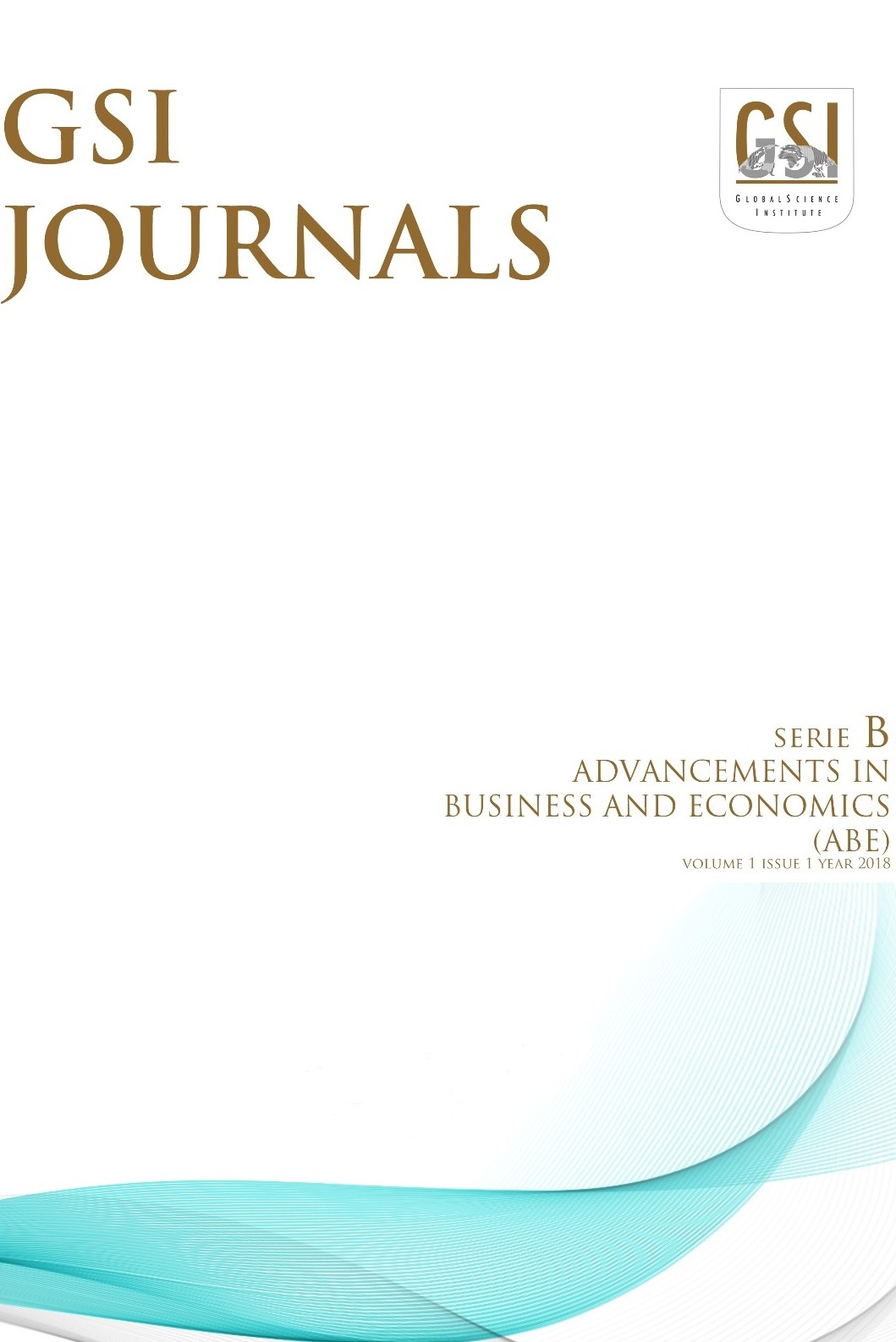NATIONAL EXPORT-PROMOTION PROGRAMS IN TURKEY: IMPACTS AND CHALLENGES
NATIONAL EXPORT-PROMOTION PROGRAMS IN TURKEY: IMPACTS AND CHALLENGES
Turkey is an emerging economy with vibrant export
potential. Hence, the Turkish government assists firms through a wide range of
export-promotion programs to pursue and enhance this dynamic structure.
However, the efficiency of these programs has recently been subject to much
debate. Procedural and environmental obstacles, lack of awareness of promotion
tools and weak communication between the firms and the government agencies are
some of the barriers blamed for hindering exporters from taking advantage of
these programs. Using Turkey as a case study, this paper examines the
export-promotion programs offered by the government and discusses the
challenges faced by exporters.
___
- Ahmed, Z. U.; Mohamed, O.; Johnson, J.P.; Meng, L. Y. (2002). Export promotion programs of Malaysian firms: an international marketing Perspective. Journal of Business Research 55, 831-843.
- Atayeter, C.; Erol, A. (2011). Türkiye’de uygulanmakta olan ihracat teşvikleri. Kahramanmaraş Sütçü İmam Üniversitesi İİBF Dergisi 1, 1-26.
- Barros, M. J. C. (2011). Decentralization of public policies for the promotion of firms’ internationalization. a proposal. Economics and Management Research Projects: An International Journal 1 (1), 66-78.
- Başer, H. Tekelioğlu, S. (2013). makine sektöründeki KOBİ’lerde ihracat performansına etki eden faktörler: Ankara örneği. Sosyal ve Beşeri Bilimler Dergisi 5 (2), 112-120.
- Czinkota, M. R. (1996). Why national export promotions? International Trade Forum. 2 (28), 10-13.
- Coughlin, C. C.; Cartwright, P. A. (1987). An examination of state foreign export promotion and manufacturing exports. Journal of Regional Science 27 (3), 439-449.
- Çelik, F. (2002). İhracata yönelik devlet yardımlarının Karaman gıda sektörü üzerine bir değerlendirmesi. Dış Ticaret Dergisi 7 (24), 77-104. Document of the World Bank (2014). Trading up high income: Turkey country economic memorandum, poverty reduction and economic management unit: Europe and Central Asia Region.
- Durman, M.; Koyuncu, C. & Önder, H. (2007). İhracat teşviklerinden yararlanmayı etkileyen faktörler. Süleyman Demirel Üniversitesi İktisadi ve İdari Bilimler Fakültesi Dergisi 12(2), 121-134.
- Durmuşoğlu, S. S.; Apfelthaler, G.; Nayir, D.Z.; Alverez, R. & Mughan, T. (2012). The Effect of Government-Designed Export Promotion Service Use on Small and Medium-Sized Enterprise Goal Achievement: A Multidimensional View of Export Performance. Industrial Marketing Management 41, 680-691.
- Ersungur, Ş. M.; Yalman, N. İ. (2009). Bölgesel kalkınmada ihracat teşviklerinin etkinliği: Sivas ilinde bir uygulama. Cumhuriyet Üniversitesi İktisadi ve İdari Bilimler Dergisi, 10 (1), 81-98.
- Francis, F.; Collins-Dodd, C. (2004). Impact of export promotion programs on firm competencies, strategies and performance. International Marketing Review 21 (4/5), 474-495.
- Kalkan, S., Başdaş, Ü. (2009). Türkiye’nin ihracat performansı üzerine bir değerlendirme. TEPAV Politika Notu, 2-9.
- Kotabe, M. & Czinkota, M.R. (1992). State government promotion of manufacturing exports: a gap analysis. Journal of International Business Studies 23(4), 637-658.
- Lederman, D.; Olarreage, M. & Payton, L. (2010). Export promotion agencies: do they work? Journal of Development Economics, 91, 257-265.
- Leonidou, L.C.; Palihawadana D. & Theodosiou, M. (2011). National export-promotion programs as drivers of organizational resources and capabilities: effects on strategy. Competitive Advantage, and Performance. Journal of International Marketing, 19 (2), 1-29. Linnemann, H.; van Dick, P. & Verbruggen, H. (1987). Export oriented industrialization in developing countries. Manila: Council for Asian Manpower Studies.
- Martincus, C. V. & Carballo, J. (2010). Beyond the average effects: the distributional impacts of export promotion programs in developing countries. IDB Working Paper Series No. IDB-WP-204.
- Onaran, Z. A. & Öztürk, T. Y. (2008). Effects of economic policies and export promotion on export revenues in developing countries. Journal of Naval Science and Engineering, 4 (1), 60-75.
- Pinho, J. C. & Martins, L. (2010). Exporting barriers: insights from Portuguese small and medium-sized exporters and non-exporters. Journal of International Entrepreneurship, 8, 254-272.
- Seringhaus, F. H. R. & Rosson, P. J. (1990). Government Export Promotion: A Global Perspective. Routledge, London.
- Şimşek, M. & Yazıcı, R. (2004). İhracat teşviklerinin etkinliğini ölçmeye yönelik bir analiz: bilecik ve Eskişehir örneği. Osmangazi Üniversitesi Sosyal Blimler Dergisi, 5(2), 121-140.
- Temiz, D. (2009). Gümrük birliği ile Türkiye’nin dış ticaretinde yapısal değişiklikler oldu mu? Ankara Avrupa Çalışmaları Dergisi 8 (1), 115-138.
- Uner, M. M.; Kocak, A.; Cavusgil, E. & Cavusgil, S.T. (2013). Do barriers to export vary born globals and across stages of internationalization? an emperical inquiry in the emerging market of Turkey. International Business Review, 22, 800-813.
- Vural, A. (2008). Türkiye’nin gelişen ve değişen ticari entegrasyon stratejileri, Türkiye’nin Küreselleşmesi Fırsatlar ve Tehditler II. Öztürk, İ. (Ed). İstanbul: İstanbul Ticaret Odası.
- Yakal, A. (2002). İhracata yönelik devlet yardımları. Dış Ticaret Dergisi, Special Edition 24-29.
- Yayın Aralığı: Yılda 2 Sayı
- Başlangıç: 2018
- Yayıncı: Halil Cem SAYIN
Sayıdaki Diğer Makaleler
NATIONAL EXPORT-PROMOTION PROGRAMS IN TURKEY: IMPACTS AND CHALLENGES
Fatih Uysal, Dilek Melike Uluçay
EKONOMİK KALKINMA VE BÜYÜME İÇİN BİR FIRSAT OLARAK KADIN GİRİŞİMCİLER
Halil Cem Sayın, Bahriye Zümrüt ERGİN
YERLEŞİMLERİ YENİDEN DÜŞÜNMEK BAĞLAMINDA YENİ BİR KENTSEL GELİŞİM VE YÖNETİM STRATEJİSİ
